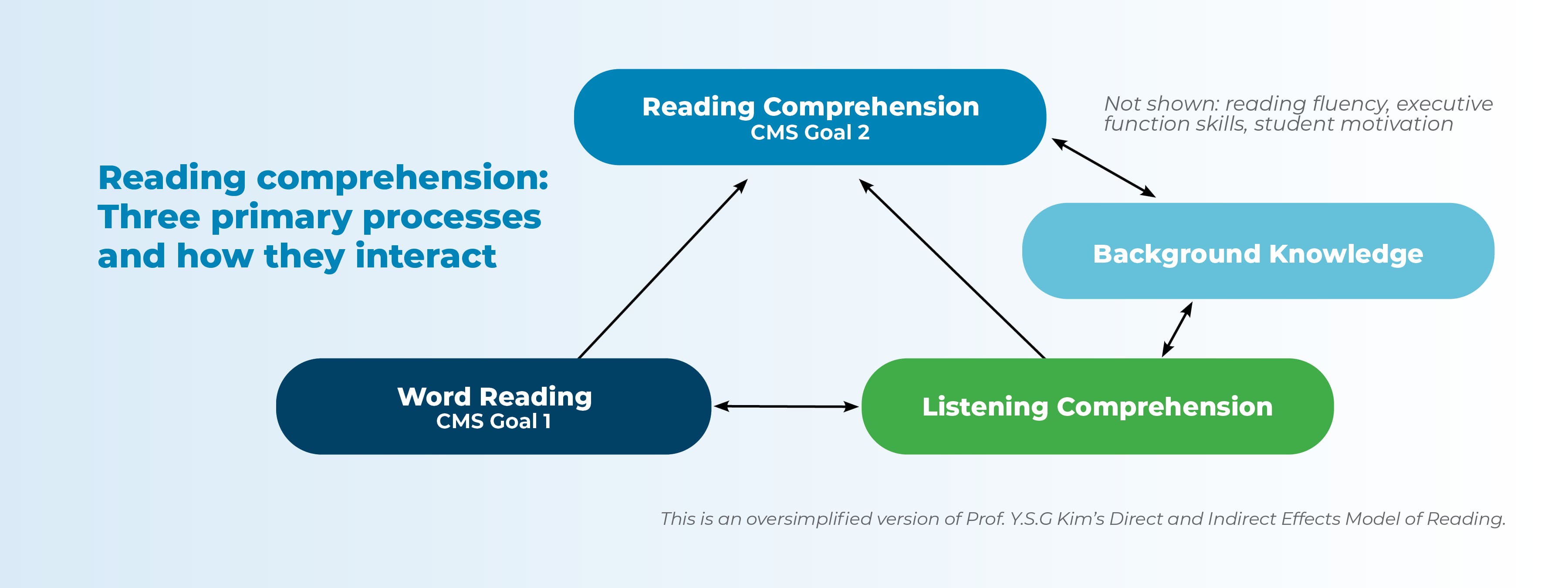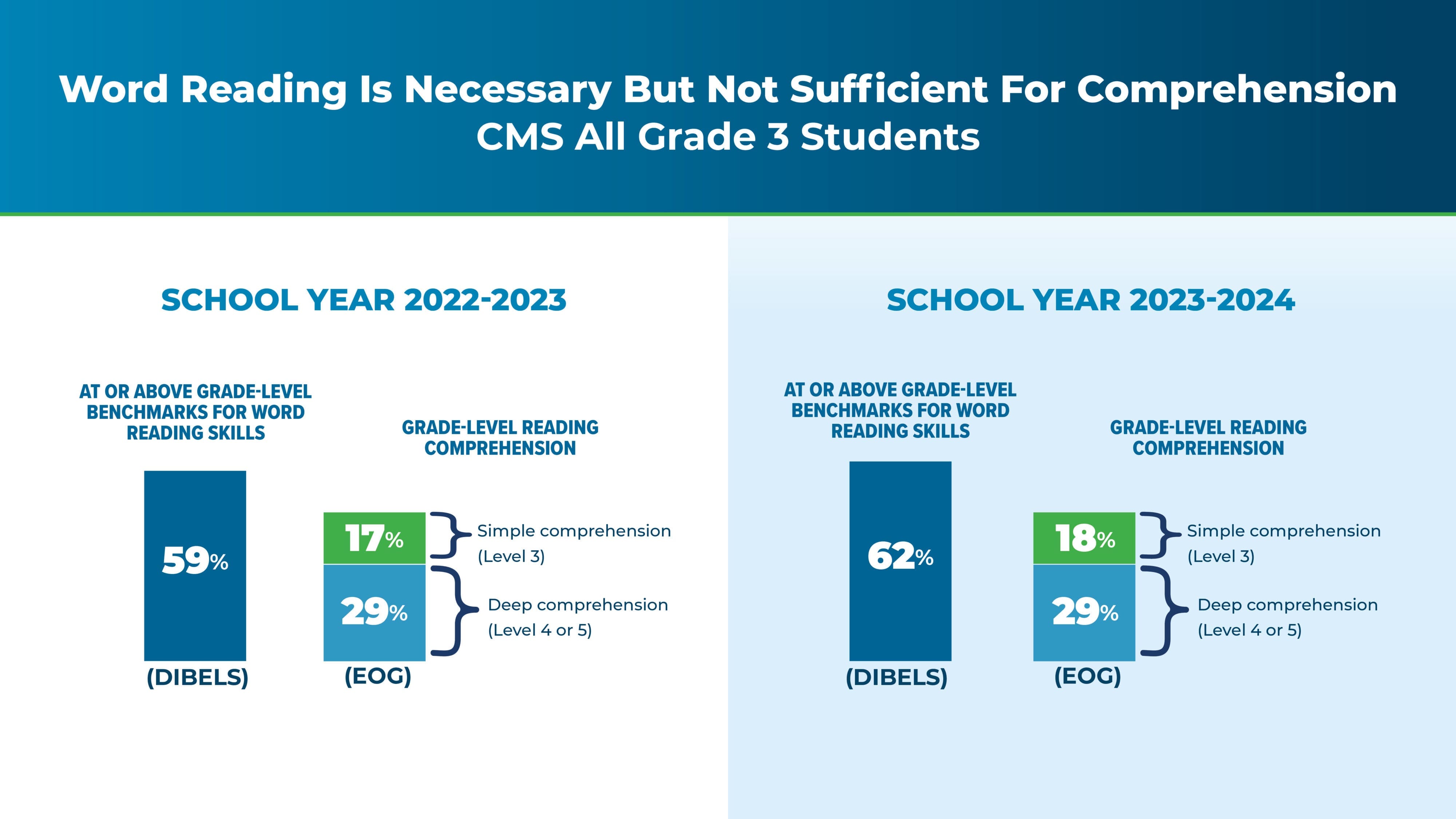Read Charlotte’s work is grounded in the latest reading science, with the aim of aligning efforts in the classroom, community, and home to improve early literacy in Mecklenburg County. Our focus areas of work are anchored on supporting the Charlotte-Mecklenburg Schools’ literacy goals that were adopted in 2024. The CMS school board approved five-year (2024-2029) academic goals based upon community input. Two of the four goals pertain to literacy, which the community named the top priorities for elementary and middle school.
Goal one involves word-reading skills, and goal two involves comprehension, vocabulary, and background knowledge. To develop the high-level reading comprehension skills required to be College and Career Ready by the end of third grade, students need to develop word-reading skills, comprehension (oral and written text), and background knowledge at the same time.

Recent research findings highlighting the predictive importance of listening comprehension for reading comprehension led to Read Charlotte adding a major focus on listening comprehension in 2024. There is widespread, and necessary, focus across the early literacy landscape on word-reading skills, but less so on listening comprehension skills. The challenge we face is how to incorporate new knowledge about listening comprehension into efforts to help children learn to read.
Solving this research-to-practice gap is critical to help children in our community read proficiently. This is evident in recent test score data for CMS third graders. In the 2022-23 school year, 59% of third graders scored at or above grade-level benchmarks for word-reading skills, as measured by the DIBELS assessment. On the EOG assessment that same year, though, 46% of third graders scored at or above grade level for reading comprehension (17% scored at Level 3, or simple comprehension, and 29% scored at Level 4 or 5, or deep comprehension). There was a similar gap in the 2023-24 school year, with 62% of third graders scoring at or above grade-level benchmarks for word-reading skills, and 47% scoring at or above grade level for reading comprehension (18% scored at Level 3, and 29% scored at Level 4 or 5).

Read Charlotte’s job is to help our community create systems change. To do that, we must modify or improve parts of the system. We think helping our community meet the challenge of effectively using new knowledge about listening comprehension is a strong opportunity to improve early literacy and create lasting change.
Read Charlotte is a community initiative that unites educators, community partners, and families to improve children’s reading from birth to third grade. We don’t run programs. We are a capacity-building intermediary that supports local partners to apply evidence-based knowledge about effective reading instruction and interventions, high-quality execution, continuous improvement, and data analysis to improve reading outcomes.
Read Charlotte is a civic initiative of Foundation For The Carolinas.
Sign up for our newsletter to keep up to date on all things Read Charlotte!